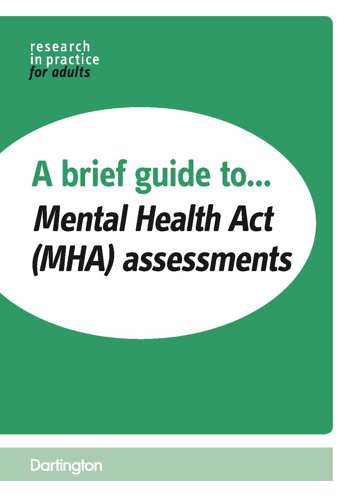Mental Health Act assessments: Brief Guide (2018)
A Mental Health Act (MHA) assessment looks in detail at whether you have a mental health condition and whether you need assessment or treatment in the interests of your health, safety and for the protection of others. The primary purpose of a MHA assessment is to help health and social care professionals (practitioners) decide how best to support you. This could be through medical treatment in hospital or the community, or other types of care or support interventions.
When deciding this, practitioners will seek the least restrictive option to ensure your human rights are protected. A MHA assessment should consider your strengths, needs and wishes and promote your wellbeing. If it is thought a hospital admission might help to provide you with the treatment and care you need, your agreement will be sought.
Professional Standards
PQS:KSS - Developing confident and capable social workers | The role of social workers | Person-centred practice | Effective assessments and outcome based support planning
CQC - Caring | Effective | Responsive
PCF - Rights, justice and economic wellbeing | Intervention and skills
RCOT - Service users | Communication

